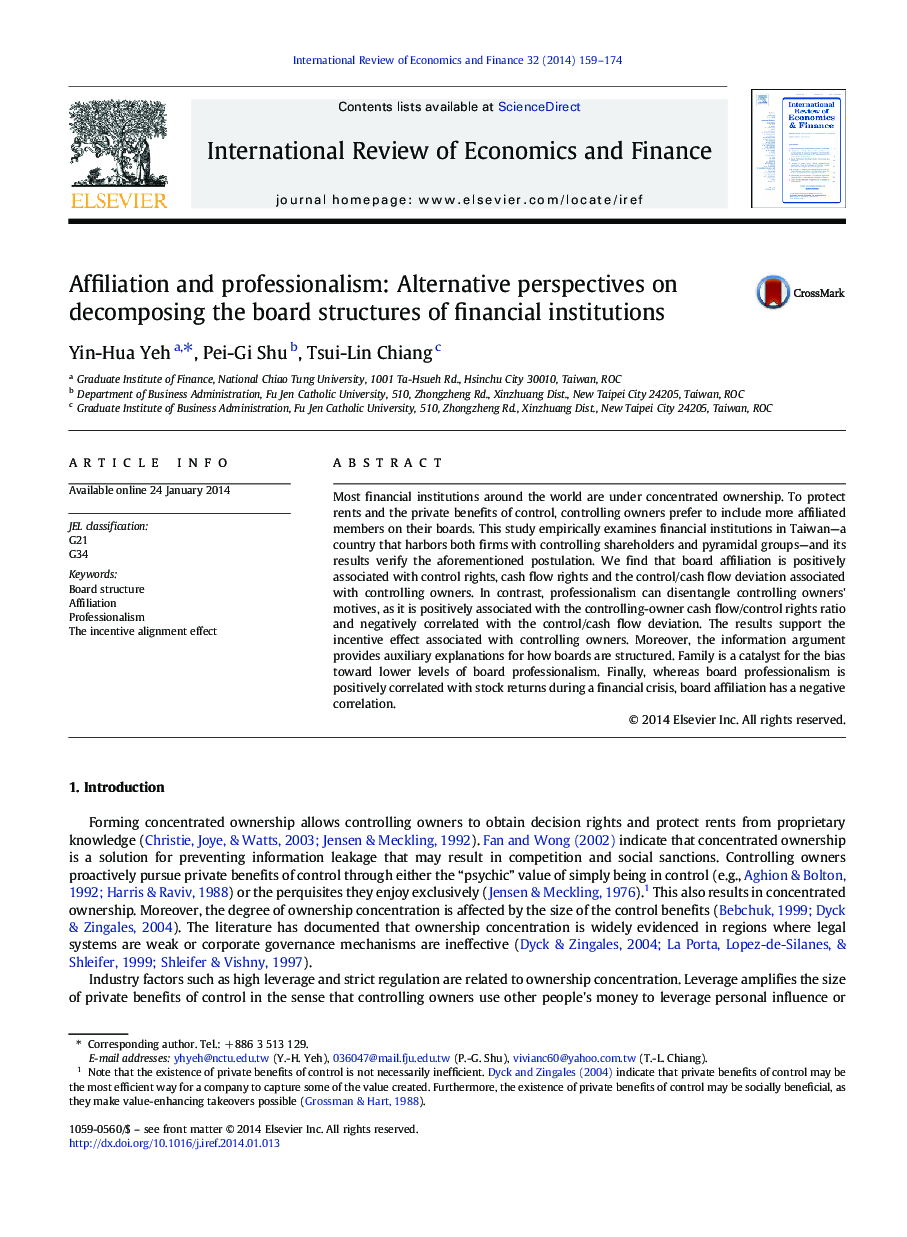| Article ID | Journal | Published Year | Pages | File Type |
|---|---|---|---|---|
| 5083408 | International Review of Economics & Finance | 2014 | 16 Pages |
Most financial institutions around the world are under concentrated ownership. To protect rents and the private benefits of control, controlling owners prefer to include more affiliated members on their boards. This study empirically examines financial institutions in Taiwan-a country that harbors both firms with controlling shareholders and pyramidal groups-and its results verify the aforementioned postulation. We find that board affiliation is positively associated with control rights, cash flow rights and the control/cash flow deviation associated with controlling owners. In contrast, professionalism can disentangle controlling owners' motives, as it is positively associated with the controlling-owner cash flow/control rights ratio and negatively correlated with the control/cash flow deviation. The results support the incentive effect associated with controlling owners. Moreover, the information argument provides auxiliary explanations for how boards are structured. Family is a catalyst for the bias toward lower levels of board professionalism. Finally, whereas board professionalism is positively correlated with stock returns during a financial crisis, board affiliation has a negative correlation.
